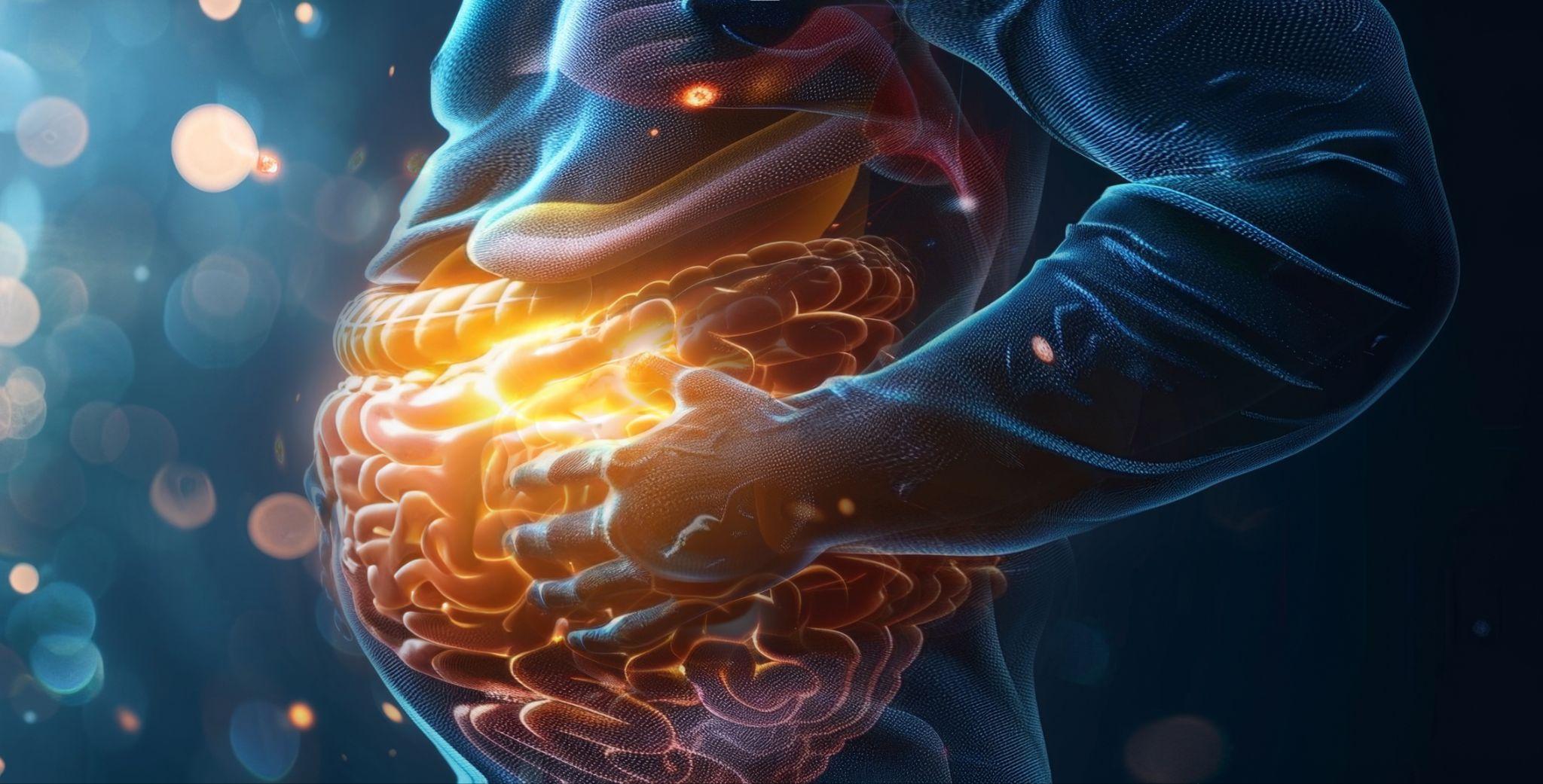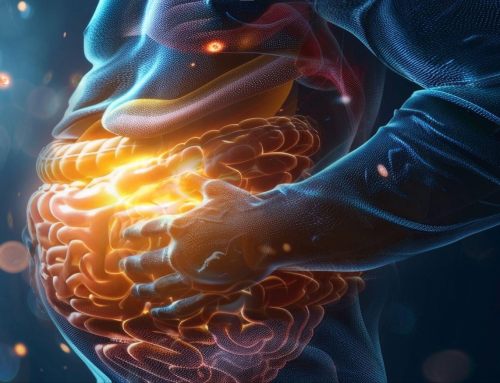Collagen in Women’s Health: Beyond Healthy Skin
Collagen supplementation has grown in popularity over recent years for claims of the reported anti-aging benefits of ingesting collagen peptides (1).A 2019 review of randomized-controlled trials (RCTs) using oral collagen supplementation to improve the quality and integrity of damaged skin found 11 valid studies with 805 human patients. Combined study results were promising for the role of oral collagen in wound healing and the reversal of skin aging (2). The allure of healthy skin, hair, and nails as signs of vibrancy in aging adults is likely driving the current market for oral collagen supplements (1). There is growing evidence for also using collagen peptides and their inherent amino acids to target a wider variety of women’s health concerns as collagen-type genetic sequencing mapping continues (3).
This is important, as collagen plays a significant role in women’s health throughout their lifespan, and collagen production is known to decline gradually with age. Several everyday lifestyle habits also contribute to decreased collagen production. A lack of quality sleep, smoking, excessive alcohol intake, excessive sun exposure, lack of exercise, and eating an inflammatory diet can negatively impact women’s health at different life stages (1).Supplementation with collagen peptides and education on avoidance of inflammatory lifestyle elements are powerful tools for functional medicine practitioners’ support of women’s health.
The Body’s Structural Matrix
Endogenous collagen is an essential structural protein, accounting for approximately 30% of the total protein content in mammals (3). A primary building block of the human body, collagen and its fibrous organizational structure is a critical component of various connective tissues, including skin, hair, nails, ligaments, tendons, bones, cartilage, and blood vessels (4). Collagen layering of fibrils in the extracellular matrix provides the organizational integrity necessary for the optimal structure and function of organs (5).
Collagen’s Many Forms
The primary function of collagen is to provide structural support, strength, and elasticity to connective tissues (4). Collagen helps maintain the integrity and shape of organs and tissues, and it plays a crucial role in wound healing, tissue regeneration, and maintaining skin health (5).There are over 25 different types of collagen found in the human body, each with a unique structure and function (5). Each type has a specific role and is composed of different combinations of amino acids, forming unique helical structures. The diversity of collagen types allows for specialized functions in various tissues and organs throughout the body. The most common types of collagen include:
- Type I Collagen: The most abundant type of collagen in the body; it provides structure to the skin, bones, tendons, ligaments, and organs (5). It accounts for approximately 20% of the body’s total protein content (3).
- Type II Collagen: Mainly found in cartilage, the connective tissue that cushions joints and provides flexibility (5).
- Type III Collagen: Often found alongside type I collagen and provides structural support to organs, muscles, and blood vessels (5).
- Type IV Collagen: This type of collagen forms a mesh-like structure and is present in the basement membrane, a thin layer separating different body tissues (5).
- Type V Collagen: Involved in forming cell surfaces, hair, and the placenta (5).
- Type X Collagen: This type of collagen is crucial for the formation and mineralization of bones (5).
Building the Matrix: From Amino Acids to Flexible Protein
Collagen synthesis is a highly regulated, complex process involving various enzymes, nutrient cofactors, and functional cellular machinery (6). Disruptions or abnormalities in this process can lead to collagen-related disorders or conditions. Collagen peptides typically have the basic structure of a triple helix and organize to form long, thin fibrils (7).Collagen comprises 19 different amino acids with a primary repeating sequence of three amino acids (Gly- X-Y), in which Gly is glycine, X is often proline, and Y is hydroxyproline or hydroxylysine (7). Collagen contains approximately 30% glycine, 12% proline, 11% alanine, 10% hydroxyproline, and 1% hydroxylysine (7).The abundance of hydroxyproline in collagen is remarkable because this amino acid is absent in other proteins (7). The atypical amino acid profile of collagen is a primary inducer of collagen synthesis in the cartilage and the extracellular matrix of other tissues (7, 8).
The 1-2-3’s of G-X-Y: Collagen’s Primary Builders
Glycine – The small size of this single carbon molecule attached to an amino and a carboxyl group helps it to be a flexible link in the formation of triple helix peptides of collagen (9). Glycine molecules also function as extracellular signaling agents of the neuroendocrine system and as glycine-based hormone precursors (9). Glycine acts as the stabilizing molecule within a collagen peptide, giving the fibrils a flexible yet sturdy structure (10). Though considered a non-essential amino acid from a metabolic standpoint, low serum glycine levels may increase insulin resistance (10).
Proline – Proline’s key provision to the structure and function of collagen is the molecule’s ability to provide expansion within collagen fibrils without compromising amino acid ordering.The “expansion joints” within collagen created by proline bending allow surface area binding sites to preserve molecular communication (11).
Hydroxyproline – Hydroxyproline is a non-essential amino acid, and its presence in the triple helix creates thermodynamic stability for collagen peptides.Defects in hydroxyproline metabolism generate abnormal quantities of this amino acid, with elevated levels contributing to skin-overgrowth diseases and decreased levels used as a marker of poor wound healing (12).
Collagen-Related Women’s Health Issues
Skin Health – Collagen is a vital component of the skin, providing strength and elasticity to the dermal layers and maintaining hydration in this significant organ (13). With aging and exposure to the oxidative effects of the previously mentioned poor lifestyle choices, the natural production of endogenous collagen declines. The site of the most pronounced collagen decline is the skin’s deep layers, where the fibrils’ organizational structure becomes less tightly woven and leads to a loosened, more chaotic organization (13). This loss of tight structure of collagen fibrils contributes to the development of wrinkles, fine lines, and sagging skin (1).
A systematic review and meta-analysis of data from 19 randomized control trials (RCTs) involving 1125 adults aged 20-70 (95% women) evaluated the efficacy of oral supplementation with hydrolyzed collagen as an intervention for skin wrinkles, hydration, elasticity, and firmness. Results from a grouped meta-analysis of the intervention trial data showed ingestion of hydrolyzed collagen for 90 days effectively reduced wrinkles and improved skin elasticity and hydration (13). Supplementation with collagen peptides can support women’s skin health and reduce visible signs of aging.
Bone Health – Collagen is crucial to the health and integrity of bone tissue. It provides structural support, strength, and flexibility to bones. During menopause, women experience a decline in estrogen levels, contributing to a reduction in collagen production, a decrease in bone density, and an increased risk of osteoporosis (14). Collagen supplementation may help improve bone mineral density and reduce the risk of fractures.
Researchers investigated the effects of daily oral intake of collagen peptides on bone mineral density (BMD) and bone formation in postmenopausal women with an age-related reduction in BMD. This placebo-controlled trial used intervention with 5g of specific collagen peptides daily for 12 months to improve the quality of bone tissue. Of 102 women who completed the trial, significant improvements in spinal BMD, femoral neck size, and body mass index were seen in the intervention versus control subjects, suggesting increased bone formation and decreased bone degradation (14).
Joint Health – Cartilage is the connective tissue that cushions joints and allows for smooth movement, and collagen is the principal constituent of cartilage. As women age, the natural degradation of collagen can contribute to joint stiffness, pain, and conditions like osteoarthritis. Supplementing with collagen may help improve joint function, reduce pain, and support overall joint health (15).
Authors of a review of recent scientific literature sought to evaluate studies showing that collagen peptide supplementation improves joint pain and function through the upregulation of extracellular collagen metabolic pathways for muscle and tendon growth. Review results show smaller, bioactive peptides in collagen promote joint injury recovery (15, 16),decreased joint pain (14), and improved joint strength, especially when paired with resistance training (15, 16).
Hair and Nail Health – Collagen is an essential building block for healthy hair and nails. It helps promote these tissues’ strength, growth, and overall appearance. By maintaining adequate collagen levels, women can support the health and vitality of their hair and nails, important targets of health concern for patients with autoimmune diseases like alopecia (17).
Of the 19 amino acids identified in collagen, including the Gly-Pro-HPro peptide (7), taurine, cysteine, and methionine may be particularly beneficial cofactors for increasing collagen synthesis and restoring hair growth in patients with autoimmune androgenic alopecia (AGA) (17). A 12-week randomized controlled trial involving 59 identified AGA patients investigated the improved clinical efficacy of prescribed AGA hair loss medication with adjunctive therapy using hydrolyzed fish-origin collagen (HC – 300 mg/dose) with added taurine, cysteine, methionine, iron, and selenium daily. Oral supplementation with the HC formula was well-tolerated among intervention subjects. Statistically significant improvements (p<0.001) were reported in global assessment scores in intervention subjects using amino acid and mineral-boosted HC in conjunction with prescribed AGA medication (17). This research suggests collagen peptide supplementation may be a beneficial adjuvant therapy in autoimmune patients experiencing collagen degradation.
Cardiovascular Health – The incidence of cardiovascular disease (CVD) in women continues to increase (18),with many signs and symptoms as risk factors for CVD commonly witnessed in functional medicine practice. Weight gain, body composition imbalance, hypertension, heart rate arrhythmias, hyperlipidemia, glycemic dysregulation and insulin resistance, and signs of systemic inflammation are potential CVD risk markers addressed in patient care (18). Collagen peptide supplementation, in conjunction with an anti-inflammatory diet and lifestyle elements, may be beneficial in reducing several risk factors of CVD.
Type III collagen provides a flexible and elastic structure to blood vessels (5). It provides the extracellular signaling mechanisms necessary for collagen synthesis to be maintained at optimal functional levels in the cardiovascular system as we age (7). While human trials are lagging in the study of collagen peptide supplementation specific to improving collagen synthesis in the cardiovascular system, studies examining the efficacy of collagen used for reducing risk markers for CVD show promising results. A systematic review and meta-analysis of 12 RCTs studying the clinical efficacy of collagen peptide supplementation for improving 11 measured CVD markers found substantial improvements in several CVD risk factors (18).The pooled data showed intervention with collagen supplementation significantly decreased fat mass (-1.21kg, p=0.01) and increased fat-free mass (+1.49%, p=0.002), improving body composition. Additionally, collagen supplementation significantly decreased serum LDL (-4.09mg/dl, p=0.048), and reduced systolic blood pressure (-5.04mmHg, p=0.018), showing reductions in two primary CVD risk factors (18). Though data meta-analysis did not find glycemic markers to be affected, glycine-rich collagen peptides may be beneficial in reducing insulin resistance (10).
Hormonal Balance – Collagen is indirectly involved in the production and regulation of hormones in the body through ligand signaling of metabolic channels mapped by researchers. Still, it has yet to elucidate in the literature fully (3). Collagen-rich tissues like bone depend on hormonal estrogen signaling to sustain adequate collagen synthesis in a woman’s skeletal system during aging (14). Conversely, declining collagen synthesis leads to reduced capacity for ligand signaling (14) and potentially decreased estrogen levels. Hormonal imbalances can occur at different stages of a woman’s life, such as during puberty, pregnancy, and menopause, and the example of estrogen-dependent collagen synthesis may explain an increasing prevalence of bone disorders in younger women (19).
During a woman’s reproductive lifespan, balanced progesterone and estrogen levels are critical to the changing expression of collagen elasticity for cervix function from pre-pregnancy to pregnancy and delivery, when the cervix must be highly flexible, and for postpartum recovery (20). As the evaluation continues into the role of these hormonal protein markers in collagen reorganization (20), future research on the reverse role of collagen peptides in balancing women’s hormones is warranted. Maintaining optimal overall health and wellness through proper nutrition, including collagen-rich foods, may indirectly support hormonal balance in women.
Check back for part two of this article series with a deeper dive into the role of collagen peptide supplementation in hormone regulation.
Are you interested in supporting your patients with more profound knowledge about the role of collagen across a woman’s lifespan? Join PLMI as we learn from the leading experts on this critical topic during our free, live, virtual webinar Exploring the Mechanisms of Action of Collagen Peptides Over the Woman’s Health Continuum on July 25, 2023, from 5-7 pm PST. Registration is FREE and takes just a minute using the following link:
Sources:
- “Collagen.” Harvard T. Chan School of Public Health, The Nutrition Source, May 2021, https://www.hsph.harvard.edu/nutritionsource/collagen/
- Choi FD, Sung CT, Juhasz ML, Mesinkovsk NA. Oral Collagen Supplementation: A Systematic Review of Dermatological Applications. J Drugs Dermatol. 2019 Jan 1;18(1):9-16. PMID: 30681787.
- Di Lullo GA, Sweeney SM, Korkko J, Ala-Kokko L, San Antonio JD. Mapping the ligand-binding sites and disease-associated mutations on the most abundant protein in the human, type I collagen. J Biol Chem. 2002 Feb 8;277(6):4223-31. doi: 10.1074/jbc.M110709200. Epub 2001 Nov 9. PMID: 11704682.
- Collagens. Cell Tissue Res. 2010 Jan;339(1):247-57. doi: 10.1007/s00441-009-0844-4. Epub 2009 Aug 20. PMID: 19693541; PMCID: PMC2997103.
- Gelse K, Pöschl E, Aigner T. Collagens–structure, function, and biosynthesis. Adv Drug Deliv Rev. 2003 Nov 28;55(12):1531-46. doi: 10.1016/j.addr.2003.08.002. PMID: 14623400.
- Wu M, Cronin K, Crane JS. Biochemistry, Collagen Synthesis. [Updated 2022 Sep 12]. In: StatPearls [Internet]. Treasure Island (FL): StatPearls Publishing; 2023 Jan-. Available from: https://www.ncbi.nlm.nih.gov/books/NBK507709/
- Gauza-Włodarczyk M, Kubisz L, Włodarczyk D. Amino acid composition in determination of collagen origin and assessment of physical factors effects. Int J Biol Macromol. 2017 Nov;104(Pt A):987-991. doi: 10.1016/j.ijbiomac.2017.07.013. Epub 2017 Jul 4. PMID: 28687386.
- Orgel JPRO, Sella I, Madhurapantula RS, Antipova O, Mandelberg Y, Kashman Y, Benayahu D, Benayahu Y. Molecular and ultrastructural studies of a fibrillar collagen from octocoral (Cnidaria). J Exp Biol. 2017 Sep 15;220(Pt 18):3327-3335. doi: 10.1242/jeb.163824. Epub 2017 Jul 13. PMID: 28705830; PMCID: PMC5612020.
- Hall JC. Glycine. JPEN J Parenter Enteral Nutr. 1998 Nov-Dec;22(6):393-8. doi: 10.1177/0148607198022006393. PMID: 9829614.
- Adeva-Andany M, Souto-Adeva G, Ameneiros-Rodríguez E, Fernández-Fernández C, Donapetry-García C, Domínguez-Montero A. Insulin resistance and glycine metabolism in humans. Amino Acids. 2018 Jan;50(1):11-27. doi: 10.1007/s00726-017-2508-0. Epub 2017 Nov 1. PMID: 29094215.
- Chow WY, Forman CJ, Bihan D, Puszkarska AM, Rajan R, Reid DG, Slatter DA, Colwell LJ, Wales DJ, Farndale RW, Duer MJ. Proline provides site-specific flexibility for in vivo collagen. Sci Rep. 2018 Sep 14;8(1):13809. doi: 10.1038/s41598-018-31937-x. PMID: 30218106; PMCID: PMC6138679.
- Srivastava AK, Khare P, Nagar HK, Raghuwanshi N, Srivastava R. Hydroxyproline: A Potential Biochemical Marker and Its Role in the Pathogenesis of Different Diseases. Curr Protein Pept Sci. 2016;17(6):596-602. doi: 10.2174/1389203717666151201192247. PMID: 26916157.
- de Miranda RB, Weimer P, Rossi RC. Effects of hydrolyzed collagen supplementation on skin aging: a systematic review and meta-analysis. Int J Dermatol. 2021 Dec;60(12):1449-1461. doi: 10.1111/ijd.15518. Epub 2021 Mar 20. PMID: 33742704.
- König D, Oesser S, Scharla S, Zdzieblik D, Gollhofer A. Specific Collagen Peptides Improve Bone Mineral Density and Bone Markers in Postmenopausal Women-A Randomized Controlled Study. Nutrients. 2018 Jan 16;10(1):97. doi: 10.3390/nu10010097. PMID: 29337906; PMCID: PMC5793325.
- Kviatkovsky SA, Hickner RC, Ormsbee MJ. Collagen peptide supplementation for pain and function: is it effective? Curr Opin Clin Nutr Metab Care. 2022 Nov 1;25(6):401-406. doi: 10.1097/MCO.0000000000000870. Epub 2022 Aug 31. PMID: 36044324.
- Khatri M, Naughton RJ, Clifford T, Harper LD, Corr L. The effects of collagen peptide supplementation on body composition, collagen synthesis, and recovery from joint injury and exercise: a systematic review. Amino Acids. 2021 Oct;53(10):1493-1506. doi: 10.1007/s00726-021-03072-x. Epub 2021 Sep 7. PMID: 34491424; PMCID: PMC8521576.
- Milani M, Colombo F; GFM-O-Trial Investigators Group: Chiara Baraldo (Padova), Mauro Barbareschi (Milano), Paolo Chieco (Ruvo di Puglia), Laura Colonna (Roma), Mandel Victor Desmond (Modena), Maria Cristina Fiorucci (Genova). Efficacy and tolerability of an oral supplement containing amino acids, iron, selenium, and marine hydrolyzed collagen in subjects with hair loss (androgenetic alopecia, AGA or FAGA or telogen effluvium). A prospective, randomized, 3-month, controlled, assessor-blinded study. Skin Res Technol. 2023 Jun;29(6):e13381. doi: 10.1111/srt.13381. PMID: 37357646.
- Jalili Z, Jalili F, Moradi S, Bagheri R, Moosavian SP, Naeini F, Mohammadi H, Mojtaba Ghoreishy S, Wong A, Travica N, Hojjati Kermani MA, Jalili C. Effects of collagen peptide supplementation on cardiovascular markers: a systematic review and meta-analysis of randomised, placebo-controlled trials. Br J Nutr. 2023 Mar 14;129(5):779-794. doi: 10.1017/S0007114522001301. Epub 2022 Jun 6. PMID: 35658958.
- Lane NE. Epidemiology, etiology, and diagnosis of osteoporosis. Am J Obstet Gynecol. 2006 Feb;194(2 Suppl):S3-11. doi: 10.1016/j.ajog.2005.08.047. PMID: 16448873.
- Nallasamy S, Yoshida K, Akins M, Myers K, Iozzo R, Mahendroo M. Steroid Hormones Are Key Modulators of Tissue Mechanical Function via Regulation of Collagen and Elastic Fibers. Endocrinology. 2017 Apr 1;158(4):950-962. doi: 10.1210/en.2016-1930. PMID: 28204185; PMCID: PMC5460796.












